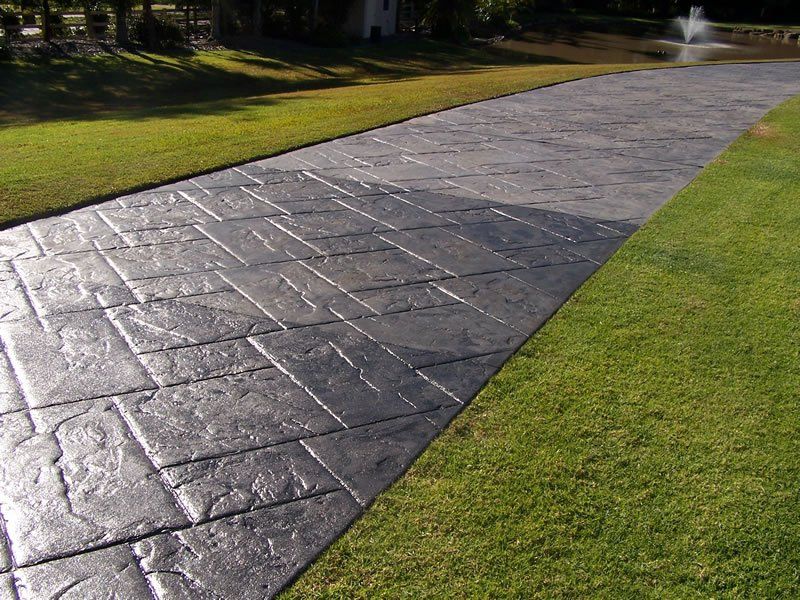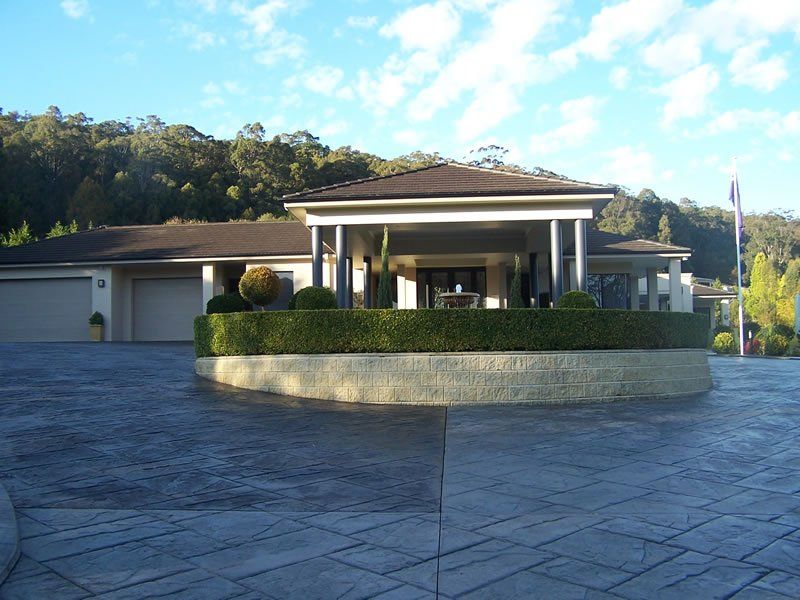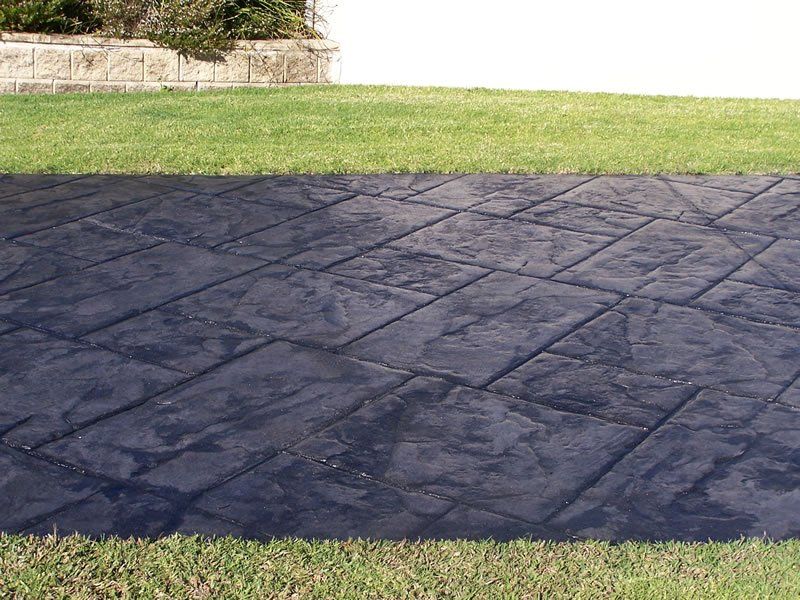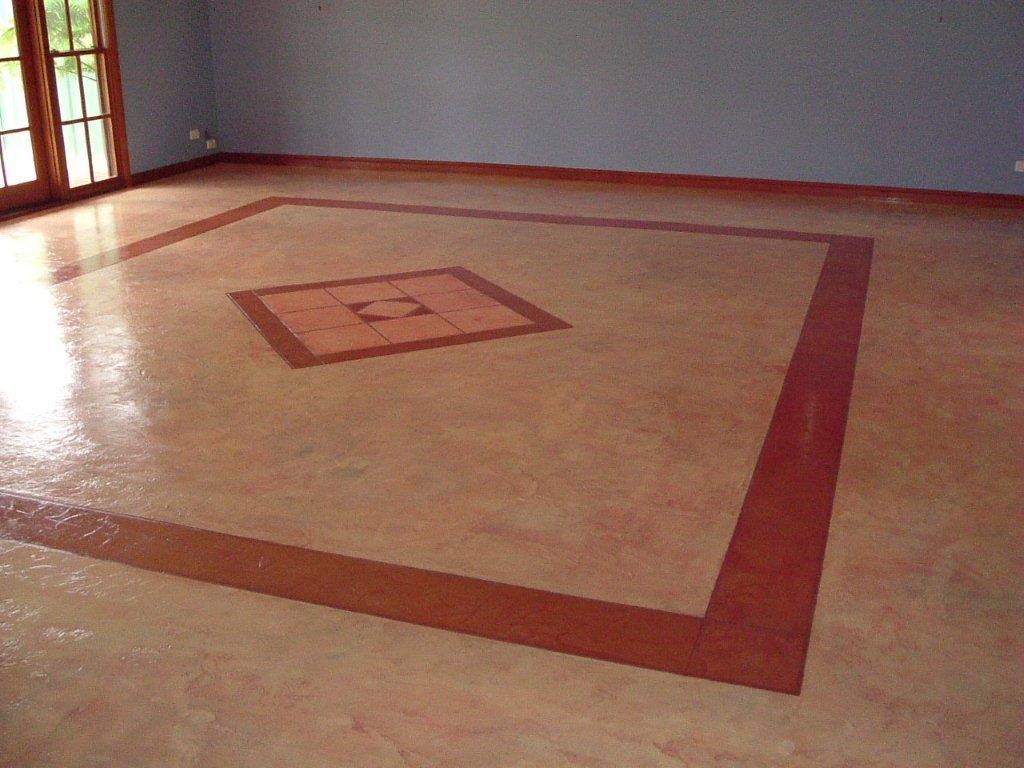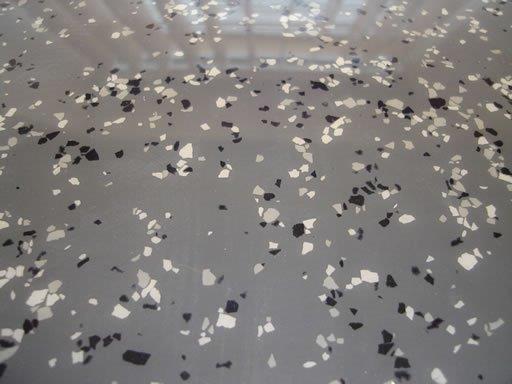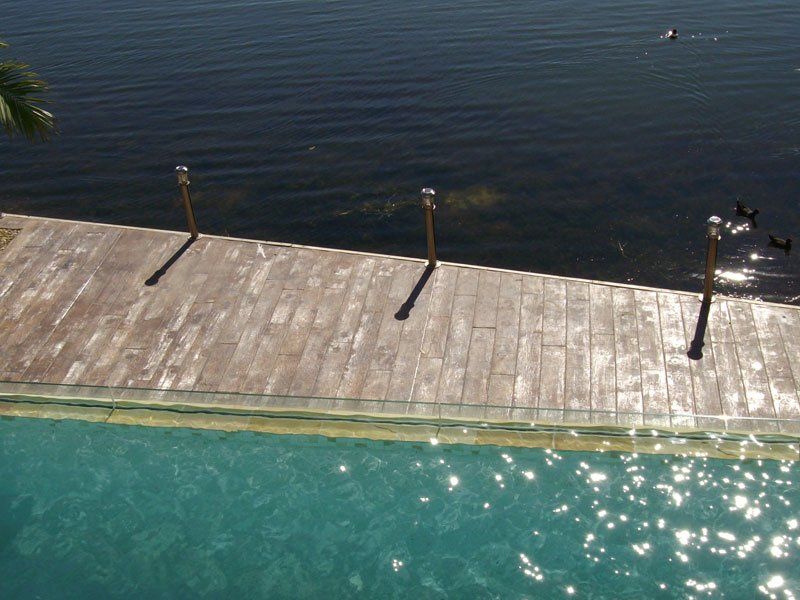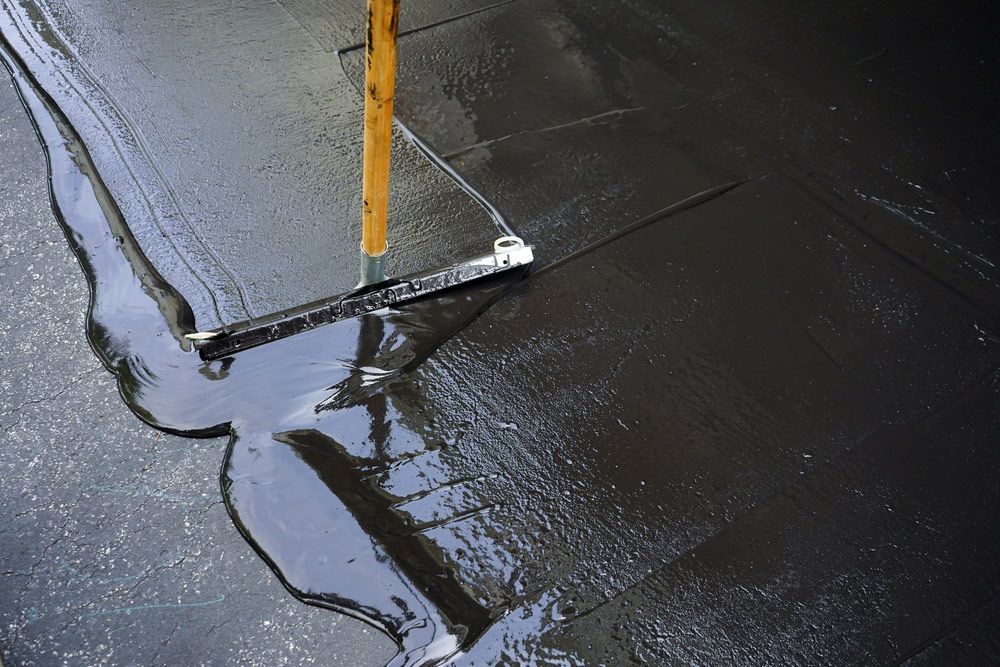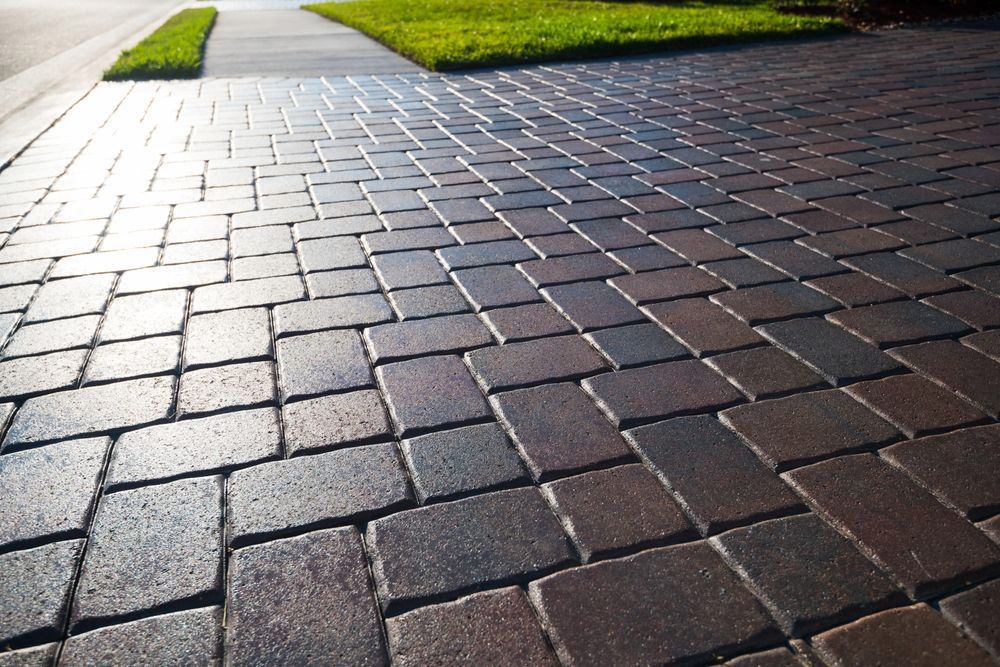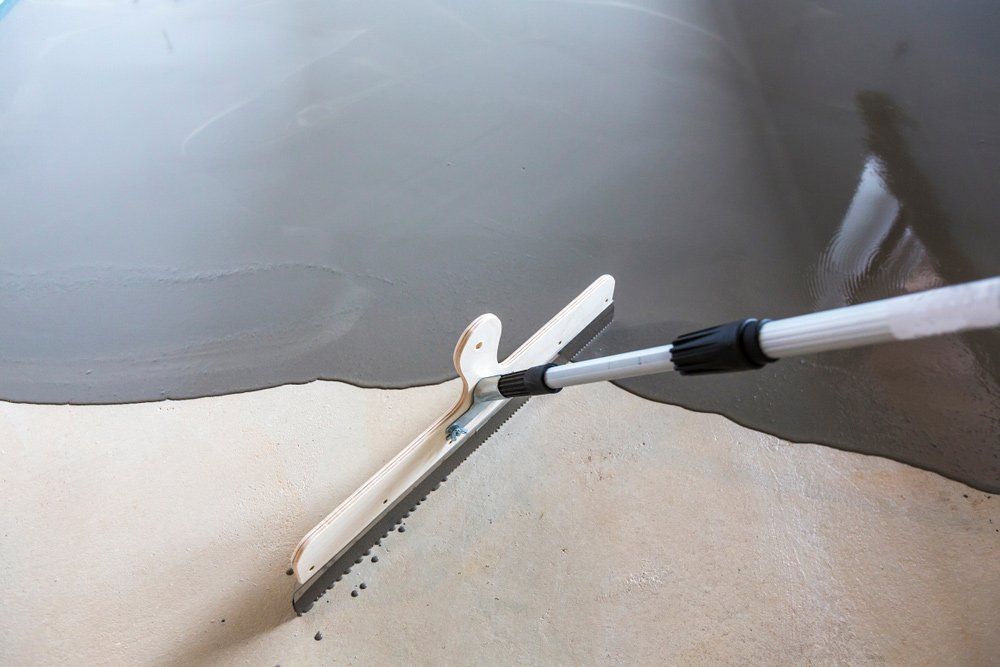Concrete Sealers Newcastle
We Provide Specialised Concrete Sealers
Protect Your Concrete Surface With Our Concrete Sealers
Choosing a sealer to use on concrete driveways is usually a balance between price, performance and appearance. Concrete Colour Solutions provides a range of concrete sealers that a perfect for an array of surfaces. We can help you find the perfect product to suit the needs of your property.
To ensure your concrete driveway, path, patio area or pool surrounds are kept in good condition, applying a good quality sealer to a well-prepared surface following manufacturer’s recommendations.
The type of finish on your surface will determine which type of sealer is recommended. If you are not sure where to start—contact our team today.
Concrete Sealers Are Suitable for All Applications
Concrete Colour Solutions supplies and applies concrete sealers that are suitable for a wide range of applications.
If you've got a concrete surface, whether that's pavers, a slab, textured concrete or concrete that's been stained or polished, odds are that it will benefit from a coat of concrete sealer.
Call on (02) 4970 4295.
What Are Concrete Sealers?
Concrete sealers are a liquid coating that's applied to a concrete surface to protect it from water damage and contaminants. Although concrete is incredibly strong and highly durable, it's also a porous material. Over time, moisture from rain or even frequent mopping can penetrate into the concrete, potentially weakening it.
In addition, untreated concrete stains really easily. Uncoated concrete driveways, for example, are prone to permanent oil stains from the vehicles parked on them; interior concrete can also end up with unsightly stains. A concrete sealer solves these problems (and more), by providing a surface that's impermeable to water.
There are several different types of sealers on the market, including:
- Epoxy coatings.
- Silicon-based coatings.
- Polyurethane coatings.
- Water-based acrylic sealers.
- Solvent-based acrylic sealers.
- Penetrating sealer.
- Densifiers.
We can provide a concrete sealer that's suitable for indoor or outdoor use, as well as one that's selected to work well in the environment your floor experiences.
Type of Concrete Sealers We Use
Solvent-Based Acrylic Concrete Sealers
Solvent-based acrylic concrete sealers are the most popular sealer used on concrete driveways, paths, patio areas and pool surrounds.
Solvent-based acrylic sealers will protect and enhance the surface and colour of your concrete whilst providing protection from the elements.
It is widely used by professionals and DIY clients. The sealer is easy to apply and also reasonably priced.
For more information or a data sheet, please
contact
Concrete Colour Solutions.
Water-Based Acrylic Concrete Sealers
Water-based acrylic concrete sealers are becoming more popular as technology advances.
They have the benefit of water dilution and clean up, good durability, low odour (VOCs) with improved hardness and flexibility.
For more information, please contact Concrete Colour Solutions.
Polyurethane Concrete Sealers
Polyurethane concrete sealers are a superior-grade sealer which can be used on all surfaces—from domestic applications, such as driveways, internal flooring and garage floors, to industrial projects.
These sealers are available in a solvent base which have excellent gloss and bond strength. Polyurethane sealers are also available in a waterbase, which have more of a satin appearance while not reducing bond strength. Water-based sealers have low odour (VOCs) and are suitable for internal use.
Both water-based and solvent-based polyurethane concrete sealers have greater durability in comparison to acrylic sealers.
For more information, please
contact
Concrete Colour Solutions.
Epoxy Concrete Sealers
Epoxy concrete sealers are traditionally used in industrial and commercial applications. However, they are becoming increasingly more popular in internal and decorative use.
Epoxy concrete sealers are high gloss with a tenacious bond strength, making them an extremely popular choice for durable coating over a wide range of applications, e.g., flake flooring, garage/shed/work bay floor sealers, and commercial floor sealers.
Penetrating Concrete Sealers
Penetrating concrete sealers are used extensively for protection of concrete, bricks, masonry, pavers and sandstone.
The sealer penetrates deeply into the surface and protects against water absorption.
Penetrating concrete sealers also help repel oil and organic-based stains, and will not change the appearance of the surface, leaving it with a natural look.
For more information, please
contact
Concrete Colour Solutions.
Coloured Concrete Sealer
Coloured concrete sealers add aesthetic value, transforming dull concrete into vibrant areas. With a wide selection of colours available, you can match or complement your existing decor, creating a cohesive look that enhances your property's overall appeal. At Concrete Colour Solutions, we provide high-quality coloured concrete sealers in Newcastle that are designed to enhance the beauty of your space while offering unparalleled protection against environmental elements. Whether you're looking to revitalise your driveway, patio or interior floors, our sealers provide a durable, non-slip surface that stands up to heavy traffic. By penetrating deeply into the concrete, our sealers create a barrier that repels water, oil, stains and other contaminants, making your concrete easy to clean and maintain. Contact us today and our team will help you select the perfect sealer for your project.
Why Use Concrete Sealers?
The main reason that property owners invest in concrete sealers is to prevent moisture and soluble contaminants from penetrating down into the concrete. Although all concrete sealers are impermeable to moisture under normal conditions, some are also resistant to other forms of deterioration, such as UV light, salt, oil (or similar compounds) and changes in temperature.
Protecting the underlying concrete from damage is a key function of a concrete sealer - if water penetrates the concrete, particularly where temperature fluctuations result in freeze/thaw action, the lifespan of the surface may be significantly reduced.
Coatings don't just protect the concrete surface from the effects of weather, accidental spillages or water used for cleaning, tougher coatings also provide a layer of cushioning, reducing the risk of scratches, gouges or chips due to heavy traffic.
A coated floor will usually wipe clean and be almost impossible to stain. If looks matter, coating the concrete will help to preserve its visual appeal. With regular applications of a suitable coating, it's possible for your concrete pavers or interior floor to stay in top condition for decades!
How Long Do Concrete Sealers Last?
The average time that a concrete sealer lasts depends on its composition. The average longevity for the commonest types of sealants is detailed below.
- Epoxy coatings - 5-10 years.
- Silicon-based coatings - depending on the penetration depth, a silicon-based coating can last from 3-25 years.
- Polyurethane coatings - up to ten years.
- Water-based acrylic sealers - 1-3 years.
- Solvent-based acrylic sealers - 1.3 years.
- Penetrating sealer (depending on the type) - up to 25 years.
- Densifiers - 1-3 years (depending on the type).
In general, longer-lasting coatings cost more to buy and apply but need to be applied less often.
Concrete Sealers For Driveways
Protecting your driveway with a quality concrete sealer can extend its lifespan and enhance its appearance. Driveways face constant wear from vehicles, extreme weather conditions and occasional chemical spills. By applying a robust sealer, you can create a barrier that repels water, reduces staining and prevents fading and cracking. This protection will keep your driveway looking new and functional for years to come.
The Best Sealer For Driveways
Choosing the right sealer can make all the difference in the upkeep and appearance of your driveway. Acrylic sealers are a popular choice for driveways due to their durability and ease of application. They are available in water-based and solvent-based formulas, with each type offering distinct advantages.
Water-based acrylics are environmentally friendly and provide a matte finish that enhances the natural beauty of concrete without the risk of yellowing. Solvent-based acrylics, on the other hand, are known for their glossy finish and superior stain resistance. Depending on your aesthetic preference and functional needs, selecting the appropriate acrylic sealer can dramatically improve the longevity and visual appeal of your driveway.
How To Apply Sealer To A Driveway
Applying sealer to your driveway is a straightforward process that requires meticulous preparation to ensure optimal results:
- Start by thoroughly cleaning the driveway and repairing any cracks or damages. This clean surface allows for better adhesion of the sealer.
- Next, choose a dry day and avoid windy days to prevent debris from sticking to the wet sealer.
- Pour the sealer onto the concrete in small sections and use a roller or a sprayer to evenly distribute it over the surface.
- Ensure consistent coverage by working methodically from one corner to the other.
- Depending on the type of sealer, a second coat may be necessary for enhanced durability and appearance.
- Allow the sealer to dry completely, which can take up to 24 hours, before using the driveway.
By selecting the right type of sealer and applying it correctly, you can significantly extend the life of your driveway and maintain its pristine appearance. If you’re looking for a high-quality concrete sealer for driveways, contact us today!
Why Choose Us For Your Concrete Sealing?
We are a local team of concrete coating specialists with years of experience and expertise in applying coatings to domestic and commercial properties, inside and out. Our team can advise and carry out all aspects of your coating job, from recommending a suitable project to completing the application with meticulous attention to detail.
Concrete Colour Solutions can apply a concrete sealer as a stand-alone project, or as a final coat to a concrete floor that we've resurfaced, stencilled or resprayed. We are a local company that's proud to serve homes and businesses in and around Newcastle.
Call on (02) 4970 4295.
FAQs
-
What is the best sealer to use on concrete?
The best sealer to use on concrete depends on several factors, such as the type of concrete, the surrounding environment and the desired finish. We have a variety of concrete sealers to choose from, each with its own set of advantages and disadvantages. Our customer service team can also help recommend a sealer based on your specific needs.
-
Is sealing concrete a good idea?
Sealing concrete is generally a good idea because it protects the surface from damage caused by water, stains and chemicals. It also enhances the appearance of the concrete and can increase its lifespan. However, it's important to choose the right sealer for the job and to invest in proper installation.
-
What are the different types of concrete sealers?
There are several types of concrete sealers available, including:
- Epoxy coatings.
- Silicon-based coatings
- Polyurethane coatings
- Water-based acrylic sealers
- Solvent-based acrylic sealers
- Penetrating sealer
- Densifiers
Each type of sealer has its own benefits and is suited to different types of concrete surfaces and environments.
-
What is the downside of sealing concrete?
While sealing concrete has many benefits, there are some downsides to consider. For example, some sealers can change the appearance of the concrete or make it slippery when wet. Additionally, if the concrete is not properly cleaned and prepared before sealing, the sealer may not adhere properly and could peel or flake over time. That’s why it’s essential to work with a reputable, professional company to ensure correct installation and receive relevant recommendations based on environmental factors.
-
Is it too late to seal concrete?
It's never too late to seal concrete, although it's best to seal it as soon as possible after it's been poured or installed. If you're not sure if your concrete has been sealed before, you can perform a simple water test to determine if it's porous and in need of sealing.
-
What time of day is best to seal concrete?
The best time of day to seal concrete is during low humidity levels. You should also avoid applying the sealer in direct sunlight, as this can cause it to dry too quickly and result in an uneven finish.
-
Can you put too much sealer on concrete?
Yes, it’s possible to put too much sealer on concrete. Applying too much sealer can result in a build-up that may not dry properly and could lead to a hazy or milky appearance. It's important to follow the manufacturer's instructions and apply the sealer in thin, even coats.
-
How long does concrete sealer last?
The lifespan of a concrete sealer depends on several factors, such as the type of sealer used, the conditions the concrete is exposed to and the amount of traffic the surface receives. In general, most sealers will last for 1 to 3 years, although some high-quality sealers can last up to 10 years.
-
How long does it take for concrete sealer to dry?
The drying time for concrete sealer will depend on the type of sealer used, the temperature and humidity and the thickness of the application. In general, most sealers will dry within 24 to 48 hours, although some may take longer. It’s important to avoid walking or driving on the sealed surface until the sealer has fully cured.
-
Can I apply a sealer over an existing sealer?
Generally, a new sealer can be applied over an existing sealer. However, it's important to ensure that the existing sealer is clean, dry and in good condition before applying a new coat. It's also important to choose a sealer that is compatible with the existing sealer to ensure proper adhesion and performance.
-
How do I choose the right colour for my concrete sealer?
Choosing the right colour for your concrete sealer involves considering the surrounding environment and the aesthetic you wish to achieve. Look at the colours of your home's exterior, landscaping and any existing hardscaping features to ensure cohesion. There is a wide palette of colours available that allows you to select a shade that complements or contrasts beautifully with your current design scheme. We recommend testing a small, inconspicuous area first to ensure the colour meets your expectations before committing to the entire surface.
-
Is it necessary to hire a professional for the application or can I do it myself?
Hiring a professional is important to ensure optimal results. Professionals have the expertise to properly prepare the surface, choose the right type of sealer and apply it evenly to avoid streaks, bubbles and uneven colouring. They can also navigate challenges such as weather conditions and surface irregularities that might affect the application. So, if you want to achieve flawless results, especially for larger or more visible areas, a professional application is recommended.
-
Can coloured concrete sealers be used on both indoor and outdoor surfaces?
Yes, coloured concrete sealers are versatile and can be applied to both indoor and outdoor concrete surfaces. For indoor applications, water-based sealers are often preferred due to their low odour and quick drying times. Outdoor surfaces benefit from both water-based and solvent-based sealers, depending on the level of durability and weather resistance required. It's important to choose a sealer appropriate for the specific conditions and usage of the area to ensure longevity and performance.
- Mon - Fri
- -
- Sat - Sun
- Closed
- Mon - Fri
- -
- Sat - Sun
- Closed




